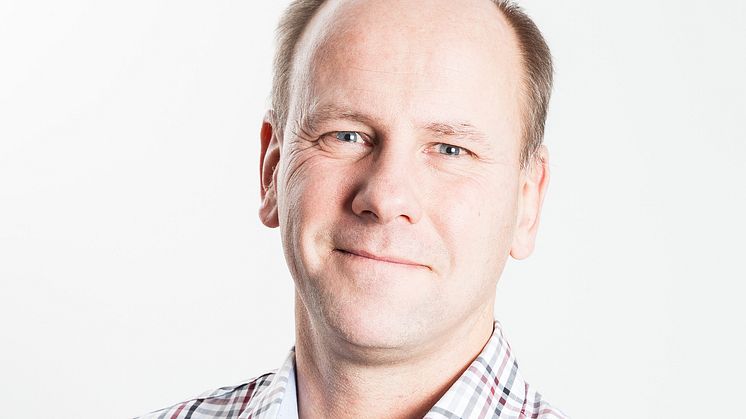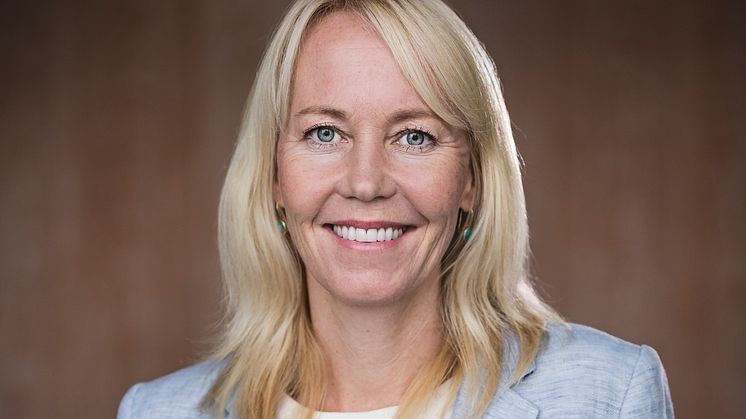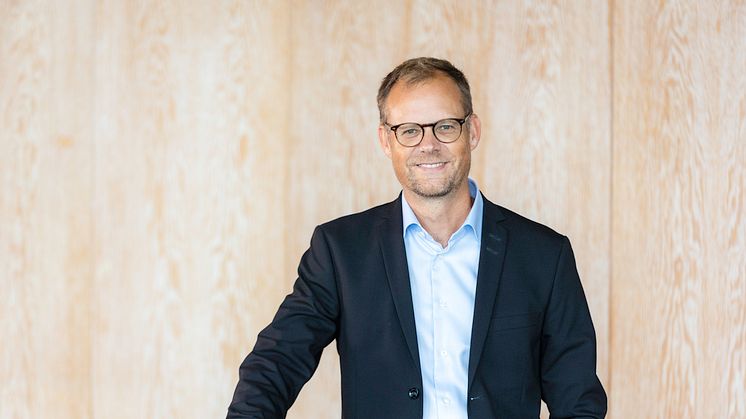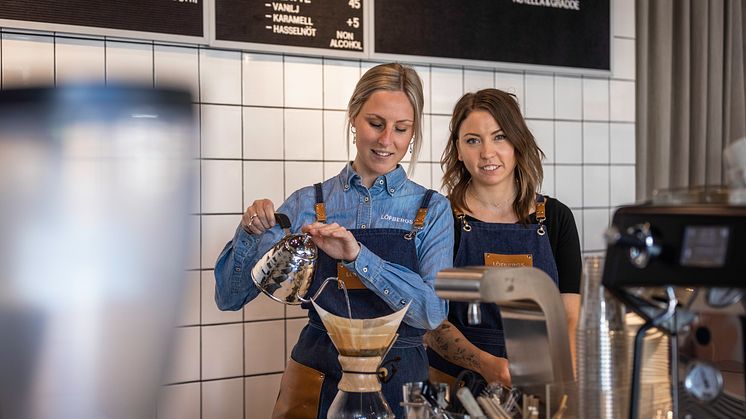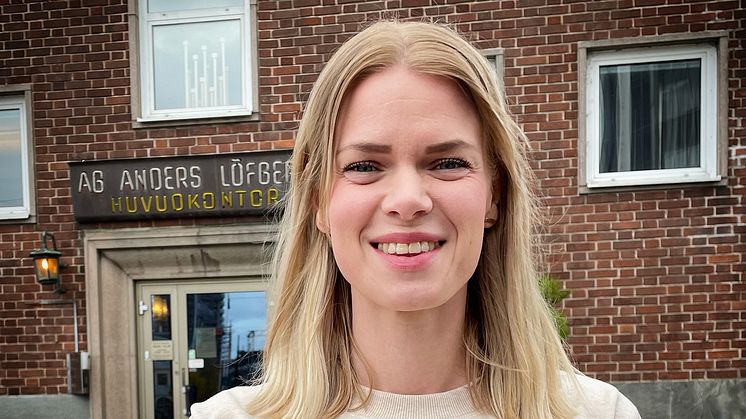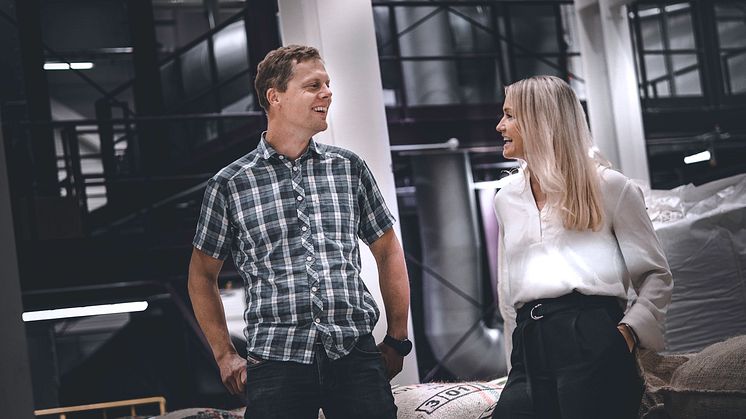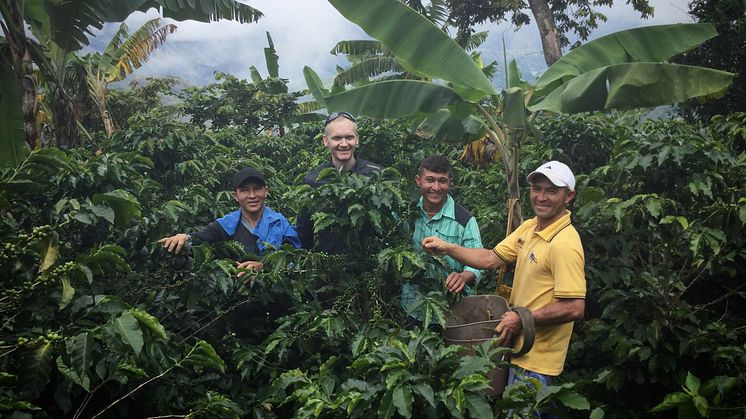
Blog post -
Together for a fair growth
A fair growth on commercial conditions, where fundamental human rights are respected, is a prerequisite for sustainable development. To secure the supply of coffee for tomorrow, Löfbergs are working together with a number of players to improve the coffee farmers’ living conditions, development possibilities, and ability to adapt to the effects of climate change.
A year of increased risks – but also new possibilities
Martin Löfberg is Chief Purchasing Officer at Löfbergs and spends a lot of his time on sustainable purchases. His colleagues and he usually travel many days per year and visit coffee farms and other suppliers. He tells us how the pandemic has made the work more difficult and increased the sustainability risks. But also how digital solutions can lead to increased transparency and simpler direct contact with the coffee farmers. Having a positive effect gives new increased possibilities.
He is proud that Löfbergs as a company is taking responsibility and promotes cooperation, engages in global issues and invests in its own production as well in the farming stages. “We are able to keep a breadth with limited resources, and we work with the totality. We do what we can to reduce the risks and have a commercially prospective perspective at the same time. It has to be related for us to make a difference in the long run,” says Martin.
“The pandemic has lead to us not being able to be on site as we usually are,” Martin tells us.
“The visits are one of our most important tools. They give us other opportunities for cooperation, when we are there and can see how climate change, infrastructure and the political situation affect a region. Despite not being able to be there physically, we have managed pretty good thanks to our long-standing relationships with many farmers and the close dialogue we have had through digital channels.”
The sustainability risks have increased during the pandemic. When people are fighting for their survival, there is less focus on working conditions, pesticides and quality. The ones at the bottom of the chain are the most affected, not least migrant workers that often pick the coffee. “The commercial aspects get even more important and to focus on how we best can contribute to reducing the risks. We purchase our coffee directly from the producing countries with as few intermediaries as possible. A large share comes from cooperatives with small-scale coffee farmers. The cooperatives can consist of hundreds of members, but we still have full traceability,” Martin explains.
Certified coffee makes a difference
Löfbergs has worked with different certification bodies to increase the supply and demand for certified coffee since 1996. Löfbergs is still one of the world’s largest buyers and roasters of organic and Fairtrade coffee. The different certifications complete and overlap each other. Everyone contributes in a positive way. The goal is that all purchased coffee will be certified by 2025.
“We have chosen to work with certifications since they give us a good third party verification. There is a big demand for certified coffee. On our travels in the producing countries, we can see with our own eyes that it decreases the sustainability risks. Some examples are that sustainable farming methods and biodiversity are increasing, that the position of women is improved and that the prerequisites for children’s education have improved,” says Martin.
Risk assessment in all stages
Purchasing has gotten a more centralised role at the company over the last years. Indirect purchases like materials, services and logistics are also handled by the purchasing department at the head office in Karlstad. It leads to a better control of all criteria being met and the evaluations are equivalent. The risk pyramid for raw material, finished goods and other goods describes how we work with risk management within our supply chain.

“Before starting up a new cooperation, we have a thorough assessment process covering all aspects of sustainability, security, and quality as well as risks connected to origin and type of product,” says Martin. “After passing, all suppliers sign and commit to our Supplier Code of Conduct. They are periodically evaluated based on it. When visiting coffee farmers, we always check sustainability, security, and quality parameters. All data is registered and followed up.”
Cooperation is the engine
On the question what Martin thinks that Löfbergs should focus more on in the future, he says hopefully: “There is an incredible power in doing things together with others – with suppliers like cooperatives and farmers, customers and other partners. We will build on that power. We will continue to both believe in and aim towards the existing global goals. Imagine the results we can achieve, if we all pull in the same direction. We want to push on for a transformation in the coffee sector. We believe in the power of a direct and transparent contact between farmer and consumer. That is why we, as the first roaster, have joined the platform Era of We, which gives more power to the farmers and increases the value of the products.”


